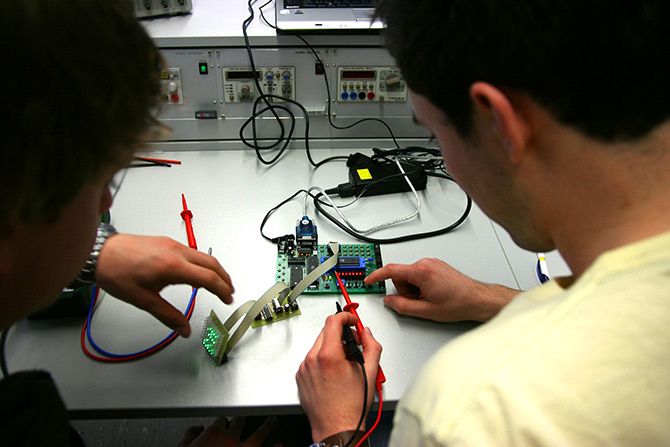The new curriculum focuses more on practical by engaging students with laboratory assignments rather than on theory.

Curriculum for engineering and technical courses across the country has been revamped by the All India Council for Technical Education (AICTE) to meet the demands of the industry.
Under the revised curriculum, the number of credits required for theory has been reduced to 160 from 220.
It has also been made mandatory that 14 out of 160 credits will be for summer internship.
According to a senior official, the new curriculum focuses more on practical by engaging students with laboratory assignments rather than on theory.
The new curriculum was launched by Union Human Resource Development Minister Prakash Javadekar today.
While lauding the efforts of the regulatory body, the minister stressed on updating the curriculum every year and carrying out reforms as per the needs of the industry.
Javadekar said that higher education in India especially technical education has witnessed an exponential growth in the last few years.
"Quality education is the only way to progress and we have taken various initiatives to give impetus to its growth.
"The existing syllabus has been revamped by preparing a model curriculum as an updated curriculum is a student's right," he said.
He said that the inclusion of mandatory internship, both industry and social, will help engineering graduates connect with the need of the industry and society at large.
He said the government is committed to provide the best teachers, infrastructure and scholarships to all the students.
He also advised that the teachers "must have passion to teach and should follow a comprehensive design of quality practice".
Under the new curriculum, it will be mandatory for the students to intern in the industry for about two to three months, even during the summer vacation, to enable them acquire the skills required for job, AICTE chairman Anil Sahasrabudhe said.
This was being done considering complaints that nearly 60 per cent of those passing out of technical education institutions are not industry-ready and still require honing, a senior official had said earlier.
Also, every student, on admission, would be put through a mandatory induction training to reinforce the fundamental concepts and the required language skills for technical education.
Affiliating universities were asked to constitute consultation committees and make suitable changes in curriculum every year.
Lead image used for representational purposes only. Image: delphinmedia/Pixabay.com










